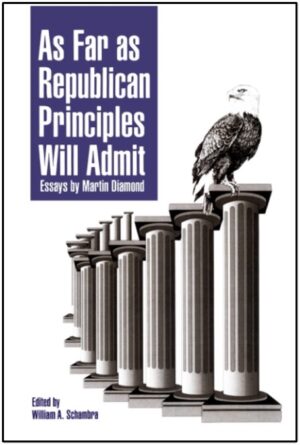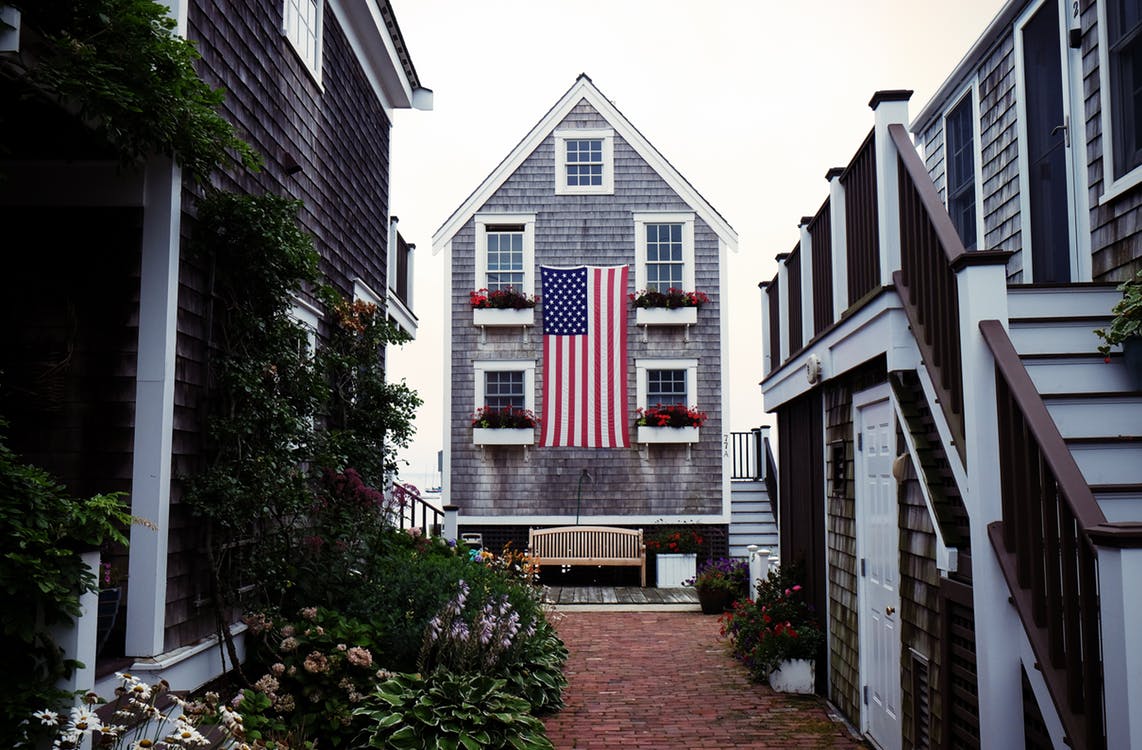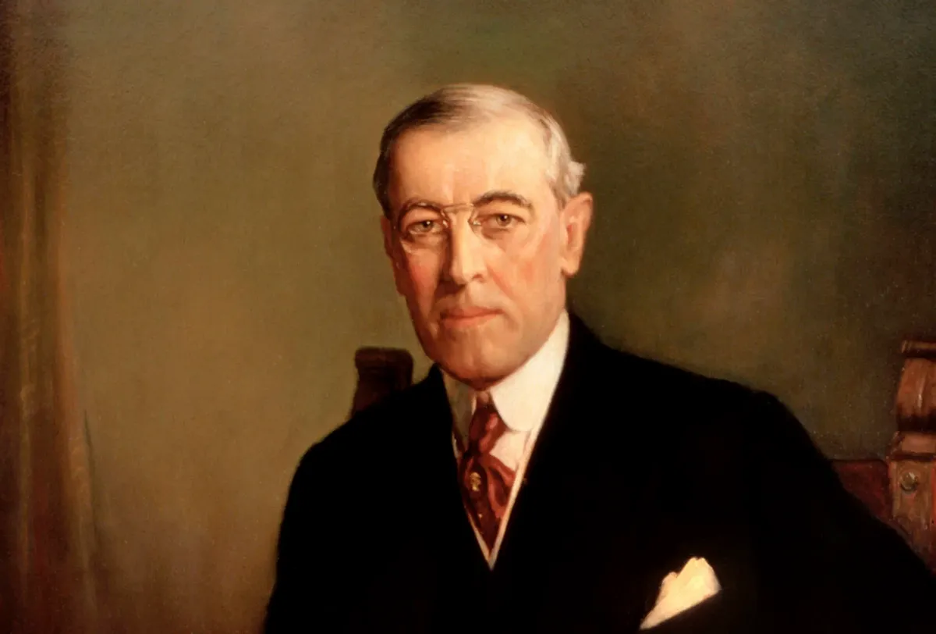Observations on The Chronicle of Philanthropy’s “The Commons” debate about whether philanthropy can bring America together.
My one visit to Wingspread (I was always invited to the grand philanthropy conference centers once; then I opened my mouth) came in the early 2000s, when “civil society” was all the rage. As is the case now, the specter of political polarization stalked the country. Few today recall that long before Orange Man Bad, there was Bushitler. And civil society seemed to hold out the answer. No matter the various partisan differences that split us, it seemed that many foundations across the political spectrum (including my then-employer, The Lynde and Harry Bradley Foundation) agreed that a revitalized civil society held out the best hope for national healing.
We all made the right noises at Wingspread and no doubt all came away with a fine sense of amicability. But I recall most vividly the comment made by a young African-American woman: “I can only view civil society through a race/gender/class lens!” That is, promoting civil society is all fine and good, but only if you first address what she regarded as the far more urgent problem of the oppression of marginalized communities. Her understanding of oppression has today evolved into the “diversity, equity, and inclusion” movement.
This abrupt and honest young woman came to mind when I read The Chronicle of Philanthropy’s first edition of its new “The Commons” section. Like the civil-society agenda of the early 2000s, this new initiative is driven by a concern with the massive polarization of American society. So it aims to bring together donors, observers, and critics to “debate how to strengthen civic engagement, build community, and bolster community.”
But like the young woman from Wingspread, I heard a lot of “this is all great, but only if you first tackle what is clearly (to me) the more important problem beneath the polarization.” For the Ford Foundation’s Darren Walker, that more important underlying problem is inequality. For Pivotal Ventures’ Brooke Anderson, it’s the inadequate representation of women in politics. For the Libra Foundation’s Crystal Hayling, it’s insufficient attention to community organizing. For Decolonizing Wealth’s Edgar Villanueva, it’s the failure to redistribute resources to communities of color. For Harvard’s Danielle Allen, it’s the breakdown of our political and electoral institutions. For the Center for Christianity and Public Life’s Michael Wear, it’s a failure to acknowledge the centrality of love. And so forth.
The Chronicle is to be commended for the diversity of points of view represented in the first version of “The Commons.” But as this list suggests, the proposed solutions to the problem of polarization only serve to compound that very problem. Yes, we should all seek to come together—but only on terms that first accommodate my particular cause, which I will now describe as so obviously just and right that it cannot fail to aggravate current tensions.
Intended displacement
I naturally gravitated to the final two essays collected under the heading “Not So Fast,” because expressing a similar sentiment is what kept me from being invited more than once to mainstream philanthropy events over my career. In addition, the two authors—Leslie Lenkowsky and Jeff Cain—both have links to this very website, having joined our small but growing list of semi-regular contributors.
They make this critical point: modern Big Philanthropy is precisely the wrong tool to try to solve the problem of polarized democracy. As Cain notes, at a time when all major national institutions are losing the public’s trust, foundations are no different, in part because they too express an elitist disdain for the untutored opinions that democracy tends to breed. And so “the professional philanthropic class shares a fundamentally progressive belief that it can design America and Americans from above: Salvation comes by way of experts and elites, top down, not bottom up.” Hence, that philanthropic class embodies “not democracy’s salvation but its antithesis.”
Lenkowsky agrees with Cain, noting that “foundations may have contributed to the [democratic] problem by displacing grassroots efforts to perform public services with top-down, sometimes technocratic ones.”
Indeed, as Cain and Lenkowsky both suggest, the displacement of American democracy was the primary intention of modern American philanthropy. No wonder the two of them find it ill-suited, after a century of pummeling democracy with elitist reforms, to suddenly claim a role as its savior.
Diamond’s description, Tocqueville’s remedy
It’s necessary to understand something about the nature of American democracy to appreciate this argument. The Founders—at least according to my beloved mentor Martin Diamond—were certainly democrats, but cautious ones, given the fact that all historical democracies had been, as Federalist No. 10 put it, “spectacles of turbulence and contention … and have in general been as short in their lives, as they have been violent in their deaths.” That’s because democracies—as we’ve found once again—had a tendency to polarization, to fatal division along the lines of the rich versus the poor, or according to powerful religious (which are for us today ideological) sentiments.
The Founders were determined to address this problem—without departing from democratic commitments—by establishing what Diamond describes as an “extended commercial republic.” In a large nation dedicated above all to limited, self-interested, commercial pursuits, citizens wouldn’t be drawn into major, noble, democracy-destroying bipolar divides along the lines of rich versus poor, or the faithful versus the infidels. They would instead narrowly think of themselves (and engage politically) as clerks, bankers, auto workers, programmers, and so forth.

Now, the Founders were fully aware that this is hardly a flattering view of human nature. But they knew that humans are not angels. Alexis de Tocqueville likewise understood the limitations of America’s solution to the problem of democracy: that it might immerse individuals so completely in petty, individualistic, material pursuits that they would withdraw altogether from public life, leaving it to the rule of seemingly benevolent, paternalistic, but ultimately oppressive elites.
But, Tocqueville observed, Americans had come up with a remedy for this problem. Their then-dispersed, decentralized local system of governing necessarily drew citizens into public engagement, not out of high-minded devotion to grand political causes (which the Founders had deliberately sought to downplay), but rather through “self-interest properly understood,” as Lenkowsky notes. Personal advancement demanded the cooperation of others, which Americans pursued through local government and Tocqueville’s much-remarked voluntary associations. The face-to-face management of everyday public affairs taught Americans how to persuade, deliberate, debate, compromise, and to respect and accommodate the views of others, no matter how personally difficult.
In other words, they ascend from radical individualistic isolation into publicly aware, competent, democratic citizens.
Overcoming disdain for the small-bore
This process, as Tocqueville noted, was bursting with energy and initiative, but anything but smooth, efficient, or straightforward. And by the end of the 19th Century, it looked like the system had collapsed into a riot of self-interest and corruption. Into this maelstrom entered the American progressive movement. The problems of the 20th Century, progressives argued, could only be solved if public affairs were removed from the hands of narrow, backward, self-absorbed petty citizens and put instead into the hands of professional elites, armed with the newly discovered social sciences, which enabled them to solve the public’s problems in a deeper and more systematic way than had previously been possible.
The first large American foundations were essential to the rise of elitist progressivism. They funded the modernization and systematization of law, medicine, public-policy research, public administration, higher education, social work, and even theology. These transformed professions would now produce the experts who would manage public affairs smoothly and efficiently, in the name of an objective public interest. There would be no more need for Tocqueville’s ramshackle, chaotic, and narrowly self-interested civic associations, which merely cluttered up progressivism’s noble, coherent, elevated view of public affairs. Big philanthropy enabled us to get to the “root causes” of problems, as it told us so often, not just “put Band-Aids” on them, as did contemptible old-fashioned local charity.
So perhaps by now it’s clear why philanthropy seems particularly ill-suited to revive democracy. Again, modern philanthropy’s entire purpose from the turn of the 20th Century on was to replace democracy, as it came to us from the Founders.
Inside the progressive box
As the contributors to “The Commons” made clear, the progressive box is extremely difficult to “think outside of.” Yes, it would be nice to fix democracy, they maintain. But to do that, you must trust us and our grantees to address the root cause allegedly behind today’s democratic dysfunction: inequality, racism, misogyny, electoral malfunction, lovelessness. All grand and noble causes, by their definitions. But precisely the sorts of grand causes the pursuit of which, the Founders feared, would tear democracy apart rather than bring it together.
Thus is recapitulated in our times the displacement of democratic engagement through civil society by arrogant professional elitism, sustained by enormous fortunes almost completely insulated from popular influence. Although the understanding of “root cause” changes frequently over the years, the underlying message is always the same: only we philanthropic elites know what it is and how to address it according to whatever body of “scientific” knowledge we’re privileging at the moment.
As Les Lenkowsky notes, quoting Irving Kristol, the only way philanthropy might in fact be useful for a revived democratic engagement would be for it to “abandon its fixation on tackling root causes and instead focus on more concrete problems that its resources could improve.” That would be extremely difficult for modern large foundations, given their massive economic and psychological investment in the apparatus of professional elitism, and their hubristic conviction that they are pursuing grand and noble goals.
But much of the growing polarization in today’s politics is precisely the consequence of our major institutions pursuing grand (and conflicting) causes, with the results that the Founders had predicted when they sought to avert democracy’s propensity to “turbulence and contention.” Only by surrendering pretensions to once-and-for-all solutions and enabling citizens once again to pursue their own modest proposed fixes can philanthropy be helpful to democratic revival. But that would require foundations to overcome their longstanding disdain for the small-bore, piecemeal, scattershot solutions everyday citizens typically come up with when they try to solve their own problems their own way.
Practical mutual endeavors, respectfully pursued
Interestingly, Drew Lindsay’s cover story for the Chronicle issue in which “The Commons” appears suggests one way this might be possible. As he notes, in rural, politically conservative Wilkes County, North Carolina, “big philanthropy operates through L.B. Prevette, a self-described ‘hillbilly lesbian’ who sports an abundance of tattoos, mismatched earrings, and T-shirts with slogans like ‘Protect Trans Kids.’” “Big philanthropy” in this case is the Aspen Institute, an exclusive think tank with headquarters in “a tony Washington D.C., neighborhood and … a campus in its namesake Colorado town, a millionaire’s playground in the Rockies.” (I was invited once to Aspen. Then I opened my mouth.)
Unlike most nationally focused philanthropic institutions, however, Aspen had decided that “if you create and support a cadre of dynamic local leaders, they will build a sense of community and pride of place so strong that differences fall away.” For Wilkes County, that meant Aspen would be making small, $5,000 grants to local projects nominated by Prevette, who “directs work you would expect at a local Rotary Club”—i.e., the sorts of civic undertakings praised by Tocqueville. Lindsay notes that “[m]oney went to a speech pathologist to start an after-school LEGO club. A food pantry to stock its shelves. A yoga teacher to start a class for young girls.”
Under the dramatically polarized circumstances of American politics today, we would have expected Prevette to abandon her hometown, embittered by the rejection and violence she experienced for her lesbianism and her poverty growing up. Had she followed the script typical of today’s ideologized political life, she would have earned a professional degree, gone to work at a major foundation in New York City, and spent her career designing top-down national programs for disrupting the racism and homophobia of small towns like her own.
Instead, when she returned to town for her father’s funeral, “neighbors, church families, and other farmers brought her food, helped on the farm, and pulled her close as she grieved.” Suddenly, “it didn’t matter that I was that lesbian girl,” it just mattered that she was her father’s daughter. “It was a reminder that I am still part of this community, that I am still someone to be loved,” she told Lindsay.
Conversely, as she began working with Aspen’s local leaders program, Prevette found the think tank’s rarified intellectual atmosphere distinctly uncongenial. “When asked what it was like to be gay in rural America, she would respond, ‘Not nearly as hard as being a hillbilly around you,’” Lindsay reports. Prevette told Lindsay that “regardless of how progressive or woke you are, it’s still OK to make fun of us.”
In short, Tocqueville’s local civic activism was alive and well in Prevette’s hometown, and—for all its oft-denounced bigotry and narrow-mindedness—it embraced her. In turn, “she determined to set aside the fear and anger that persisted” from her outsider childhood experiences and instead become part of the fabric of local community. She not only functioned as the county’s representative of Aspen’s local leaders program, involving a diverse range of civic authorities in its management. She also opened Merle’s, a local bar frequented by the gay community, which was nonetheless recently named small business of the year by the county chamber of commerce. She’s not hesitant to proclaim her political inclinations. But she’s also prudent enough not to go out of her way to offend local sensibilities, choosing to forego drag shows at Merle’s that might “deter some from coming to a space designed to be a community gathering spot.” Ideological chasms are slowly bridged by practical mutual endeavors, respectfully pursued.
Stories of self-effacing strategies
As Tocqueville would have predicted, once citizens with even dramatically different worldviews begin to come together around addressing concrete local problems, the otherwise-polarizing political divisions among them begin to lose their power. Neighbors come to know each other as parts of the community first, committed in practical and immediate ways to its survival, rather than as remote and hostile combatants doing battle for grand, opposed political causes. The small grants that Aspen made possible in Wilkes County helped to counter democratic dysfunction and nurture a healthier civic life, $5,000 at a time.
Lindsay acknowledges that this sort of “hyperlocal strategy” is foreign to American big philanthropy. “Indeed, Aspen’s work in Wilkes might seem like throwing pebbles in the ocean—and avoidance of systemic issues like income inequality and racism that many see as the root of the country’s divides.” But as most of the other contributions to “The Commons” demonstrate, philanthropy’s efforts to attack those root causes head-on with sweeping, elite-driven national programs only further aggravate grave ideological divisions, even as they purport to overcome them.
Meanwhile, in Wilkes County, North Carolina, one “hillbilly lesbian,” working alongside her fellow Red-state citizens within the sort of social institutions that Tocqueville celebrated, is helping to build a depolarizing local community by focusing on concrete, immediate, practical problems. What more might be accomplished if other foundations were to humble themselves enough to adopt this self-effacing strategy in other communities across the nation? If The Chronicle can bring us more such stories, it will go a long way toward fulfilling the depolarizing mission of “The Commons.”




